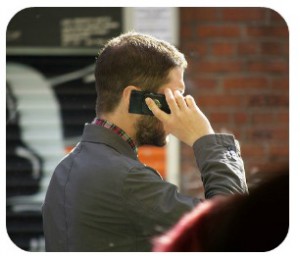 From a young age Americans are taught to keep a close eye on their Social Security number. After all, this unique code acts as an identifier for everything from bank accounts to medical records. If it falls into the wrong hands, all of your personal information could become compromised. To prevent this from happening, the government requires companies to keep Social Security numbers private while advising individuals to reveal it only to trusted parties.
From a young age Americans are taught to keep a close eye on their Social Security number. After all, this unique code acts as an identifier for everything from bank accounts to medical records. If it falls into the wrong hands, all of your personal information could become compromised. To prevent this from happening, the government requires companies to keep Social Security numbers private while advising individuals to reveal it only to trusted parties.
But in today’s digital age there’s another important piece of data that doesn’t receive nearly as much protection: your cellphone number. According to former FBI agent and private investigator Edward Stroz, the average American’s mobile number has become “kind of a key into the room of your life and information about you.” Companies now depend on cellphone numbers to predict your purchases and even determine what you look at online or watch on television. And unlike your Social Security number, institutions are under no obligation to keep your mobile number private. What’s more, commercial websites often require users to provide a phone number for registration. As these digits become increasingly important, people could end up at risk for doing something as simple as ordering a takeout meal online.
In the past, the use of landline phones meant that an individual may change numbers several times depending on how often they moved. That’s not the case these days: half of all American households have ditched their landlines, including the 80 percent of people aged 25 to 29 who rely solely on wireless services. In fact, many of these individuals received their cellphones as teenagers, meaning that their numbers are likely to stick with them for life. This unique set of data then follows you around indefinitely, appearing far more frequently in online forms than a Social Security number and with none of the security. To combat potential danger, services like the app Sideline protect your identity by adding a second number to your cellphone. This allows you to provide contact information when you need to while also ensuring that your data remains safe. “This gives you a second mobile identity, which more and more people need today,” said developer Greg Woock.
Questions:
- Why have cellphone numbers become such an important piece of your online identity?
- Should the government require companies to treat cellphone numbers in the same secure way as Social Security numbers?
Source: Steve Lohr, “A 10-Digit Key Code to Your Private Life: Your Cellphone Number,” The New York Times, November 12, 2016. Photo by Tim Parkinson.
